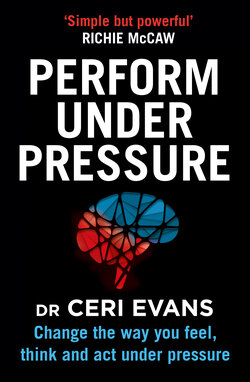Читать книгу Perform Under Pressure - Ceri Evans - Страница 27
Memory
ОглавлениеThe signals we receive from our parent and our reactions to them are absorbed into our memory and act as powerful automatic templates or ‘scripts’ for our responses to later events. By the time we’re 18 months old, encoded memory scripts are ingrained in our limbic system and automatically guide how we manage our arousal in new situations.
During our critical first two years, a huge number of nerve cells are produced, which are pruned back to reflect our dominant reactions, good or bad. Our RED reactions become hard-wired. We form memories of automatic procedures that are either healthy and flexible, or rigid and unhelpful.
Our memories can be divided into two main types:
1 Explicit memories, which encode facts and events
2 Implicit memories, which encode procedures for how to do things
An explicit memory records what happened and when, and labels it as either pleasant or unpleasant. To form an explicit memory, we have to consciously focus our attention, which requires our BLUE mind. But explicit memories are not true records of what happened, because they are also encoded with emotion from our RED mind, which makes them more vivid. In addition, they are influenced by the way we are paying attention at the time. We can generally recall a memory more easily when we’re in the same emotional state we were in when the memory was formed.
Implicit memories are unconscious records that show us how to do something, such as writing. As we’ve seen, these are formed from birth through repeated experiences. We don’t consciously have the experience of ‘remembering’: when we are writing, we just do it. Our implicit memories run automatically.
The early scripts that capture how we think, feel and act in response to cues from our environment are examples of powerful implicit memories. We have no sense of recall when they are triggered; we just ‘find’ ourselves functioning in a certain way that feels entirely natural, whether it is helpful for us or not.
But certain implicit memories formed during childhood can modify this early emotional template, and can have a particularly powerful effect on our performance under pressure.
